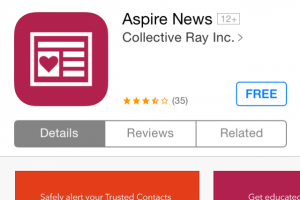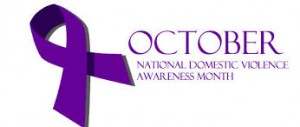All posts today have been cut and pasted from various sources. In honor of Domestic Violence Awareness Month, I thought it might be a good idea to define a few terms and enlighten our sketchyscribe readers to a few facts:
From the website DomesticViolence.org:
Domestic violence and emotional abuse are behaviors used by one person in a relationship to control the other. Partners may be married or not married; heterosexual, gay, or lesbian; living together, separated or dating.
Examples of abuse include:
- name-calling or putdowns
- keeping a partner from contacting their family or friends
- withholding money
- stopping a partner from getting or keeping a job
- actual or threatened physical harm
- sexual assault
- stalking
- intimidation
Warning Signs of an Abusive Relationship
A DrPhil.com Exclusive
Are you or someone you love in an unhealthy relationship? Dr. Frank Lawlis, Chairman of the Dr. Phil Advisory Board, says there are warning signs to look out for.
Take the following self-test:
1) You have been physically harmed, including being hit, pushed, choked, pinched or slapped?
2) You are subjected to threats of harming you, your friends, family or guilt-induced that you may cause him to harm himself?
3) You live in fear of his disapproval and the resultant consequences?
4) You are called demeaning names or criticized, teased and ridiculed in a mean spirited way (“fat”, “ugly”, “bitch”, “stupid”, etc.)?
5) You are made to feel that any problems, yours or his, are all your fault?
6) You observe him mistreat/rage against others including family, friends, service people or pets?
7) You are forced to be isolated from your friends or family in order to maintain harmony?
If you answered yes to any of the above questions, we encourage you to speak with a family member or counselor you can trust.
If You Are Being Abused
- Call the police if you can PROVE physical or sexual abuse. Emotional and verbal abuse is VERY hard to prove.
- Avoid becoming isolated and confide in someone.
- Do not feel shame and know that no one has the right to hit or control you with fear.
- Know that there is no excuse for abuse, it is not your fault and you are not alone.
- Consider ending the relationship as soon as possible.
- Develop a safety/exit plan that does not include confronting your abuser:
- Know emergency numbers.
- Keep spare house and car keys and a suitcase with essentials hidden but accessible.
- Know where you can stay in an emergency.
- Hide key documents and some emergency money
- Work out a distress signal-system with a friend or loved one.
- Know the phone number of your local battered women’s shelter.
- After letting a trusted family member or friend know your situation, develop a plan for when you need help: code words like “sketchy times” you can text when you are in trouble.
- If you are injured, go to a nurse, doctor or emergency room and report what happened to you. Ask that they document the visit.
- Keep a journal of all violent incidences (including verbal) noting dates, events and threats made.
- Keep any evidence of physical abuse, such as pictures.
- If you need to sneak away, be prepared. Make a plan for how and when you will escape.
- Back your car into the driveway, and keep it fueled. Keep your driver’s door unlocked and other doors locked for a quick escape.
- Set as much money aside as possible. Local buses can charge as little as $1 for each trip. Ask family members to hold money for you. 🙂
- Pack a “sleepover bag.” Include an extra set of car keys and house keys (if possible). There is a locksmith literally “a stone’s throw” from your school. You could walk there from your house. Find your birth certificate, social security cards, IDs (including Driver’s license, Student IDs. Even a COPY of these documents will be OK), medications, clothes, shoes, anything that is important to you. Store this bag at a trusted friend’s house. Try to avoid using the homes of next door neighbors, close family members, and mutual friends.
- Know abuser’s and enabler’s schedules and safe times to leave.
- Be careful when reaching out for help via internet, or telephone. Erase your internet browsing history, websites visited for resources or emails asking for help. If you call for help, dial another number immediately after in case abuser hits redial.
- Create a false trail. Call motels, bus stations and schools in a town at least six hours away from where you plan to relocate.
- Once again, DO NOT CONFRONT YOUR ABUSER. Get away safely and talk later.
- If possible, get the ASPIRE app uploaded on your smart phone OR the smart phone of a trusted friend. To the casual onlooker, the app looks like a news app. “It’s good for people of this world to be informed on current events, right!” But you can get resources and help from family and friends when you add them to the “trusted contacts” section of the app. By the mere push of a button, you can contact various national help resources too.
- Know that this is NOT your fault. You are NOT alone.



Your style is very unique compared to other folks I have read stuff from.
Thanks for posting when you’ve got the opportunity, Guess
I will just book mark this site.
Thanks Julianne! I cannot take the credit for this post, however. Dr. Phil.com and Domestic violence.org deserve the credit. I just thought I’d take the opportunity to showcase Domestic Violence Awareness month in October. Here’s to wearing purple for all those folks who are being abused by others. You are not alone.